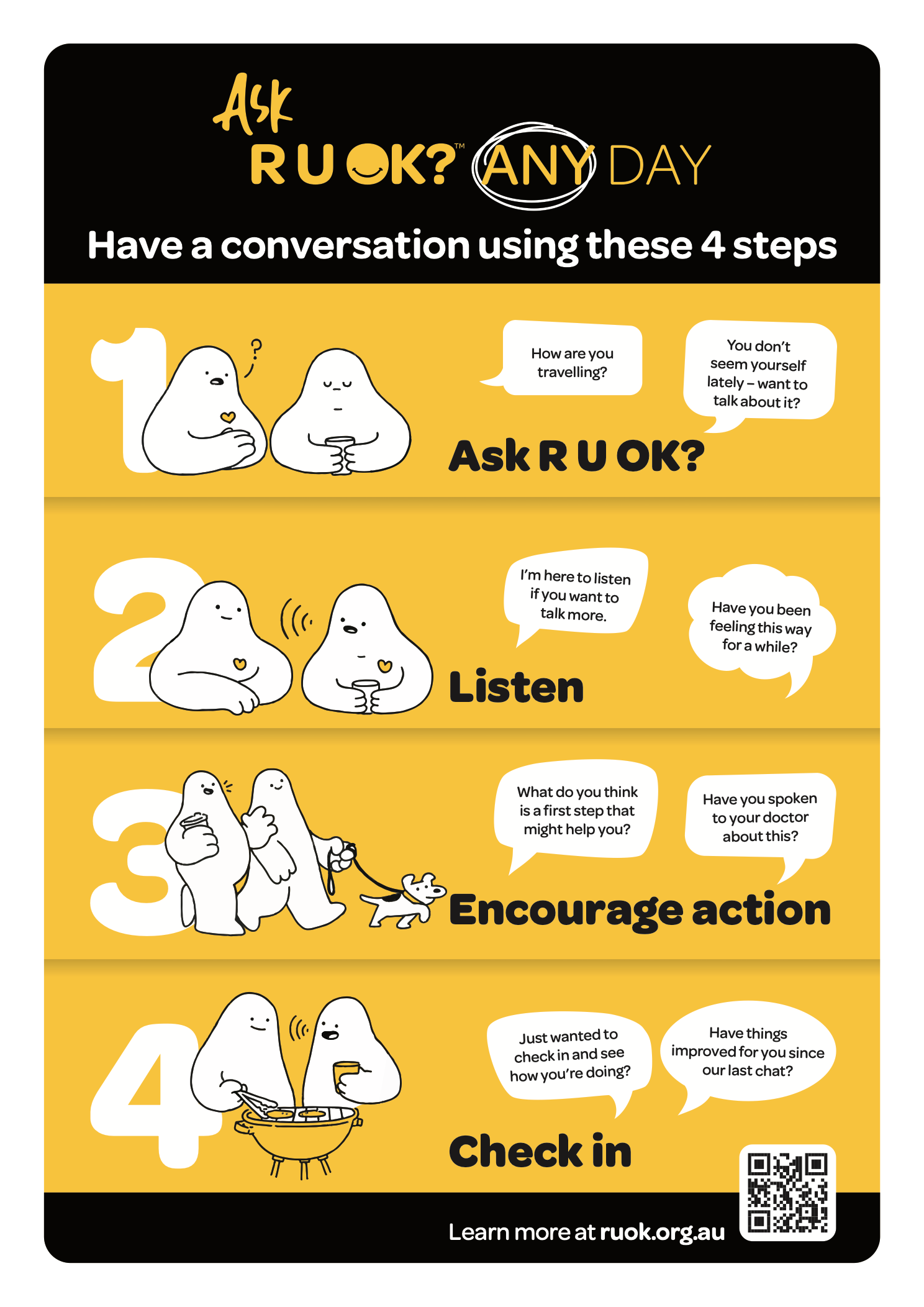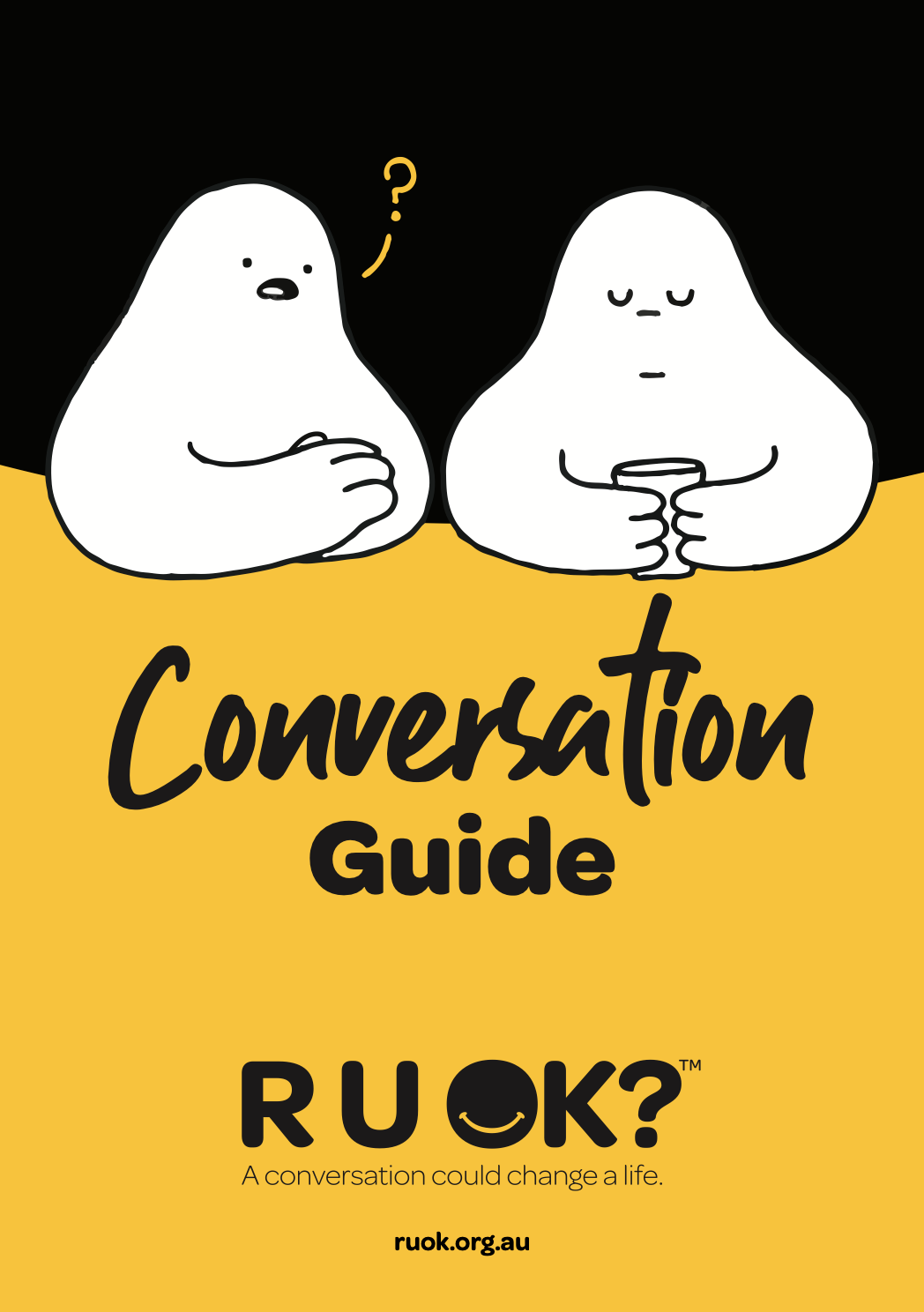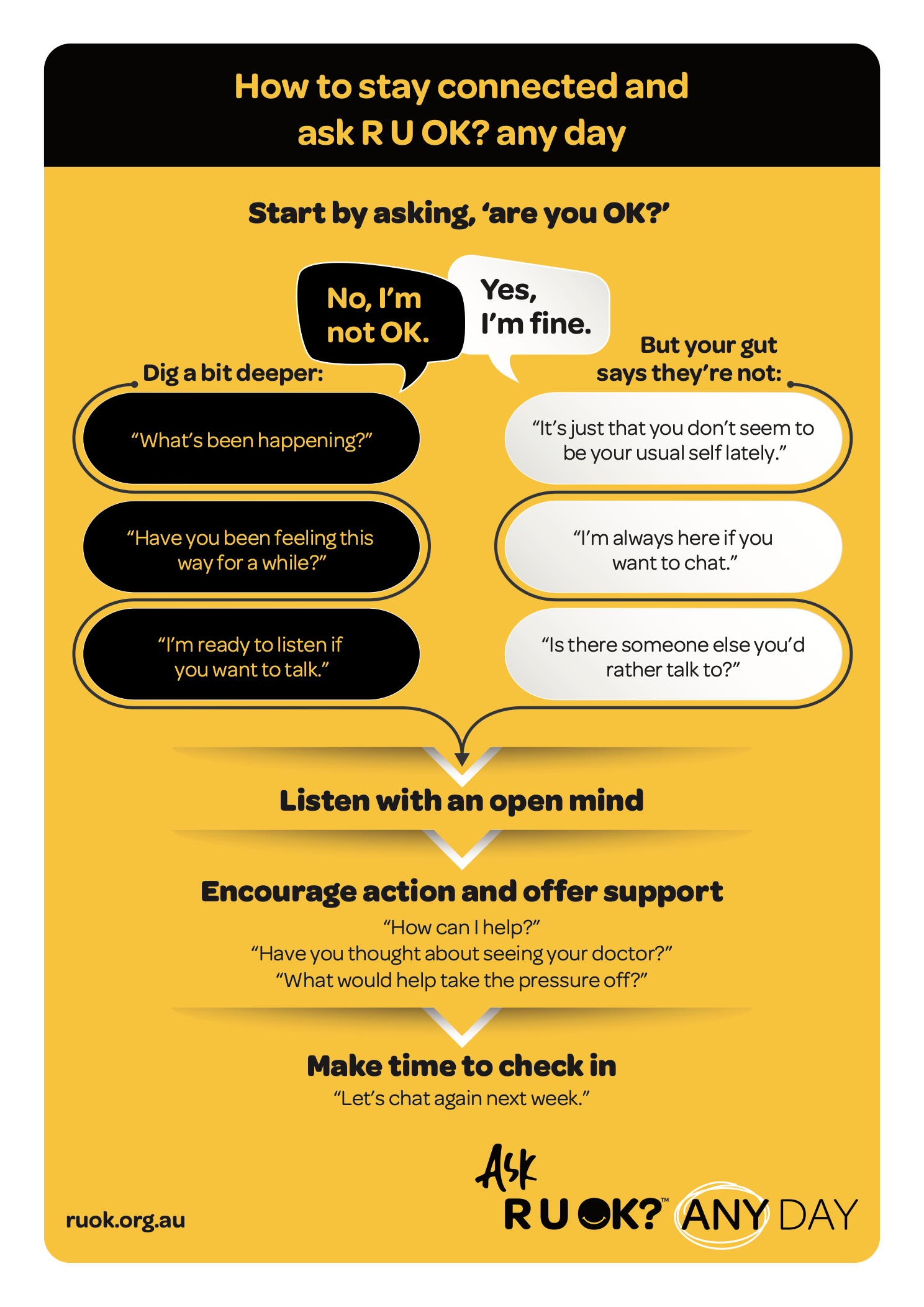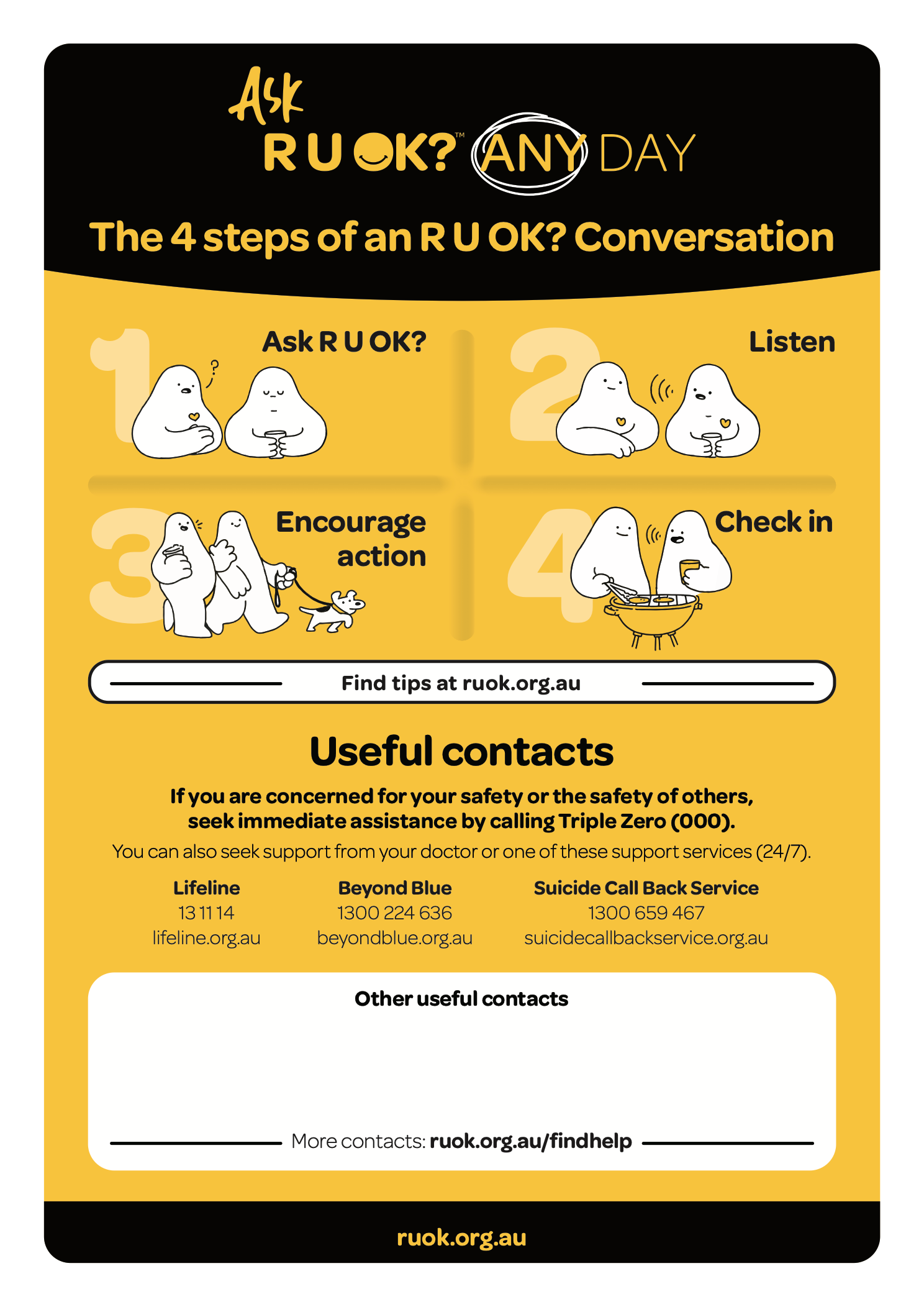HOW TO ASK R U OK?
SIMPLE STEPS THAT COULD CHANGE A LIFE
A CONVERSATION COULD CHANGE A LIFE
Got a feeling that someone you know or care about isn’t behaving as they normally would? Perhaps they seem out of sorts? More agitated or withdrawn? Or they’re just not themselves. Trust that gut instinct and act on it. Learn more about the signs and when it's time to ask R U OK?
here.
By starting a conversation and commenting on the changes you’ve noticed, you could help that family member, friend or workmate open up. If they say they are not OK, you can follow our conversation steps to show them they’re supported and help them find strategies to better manage the load. If they are OK, that person will know you’re someone who cares enough to ask.
GETTING READY TO ASK
Before you can look out for others, you need to look out for yourself. And that’s OK. If you're not in the right headspace or you don't think you're the right person to have the conversation, try to think of someone else in their support network who could talk to them.
To help you decide whether you’re ready to start a meaningful conversation, ask yourself:
AM I READY?
- Am I in a good headspace?
- Am I willing to genuinely listen?
- Can I give as much time as needed?
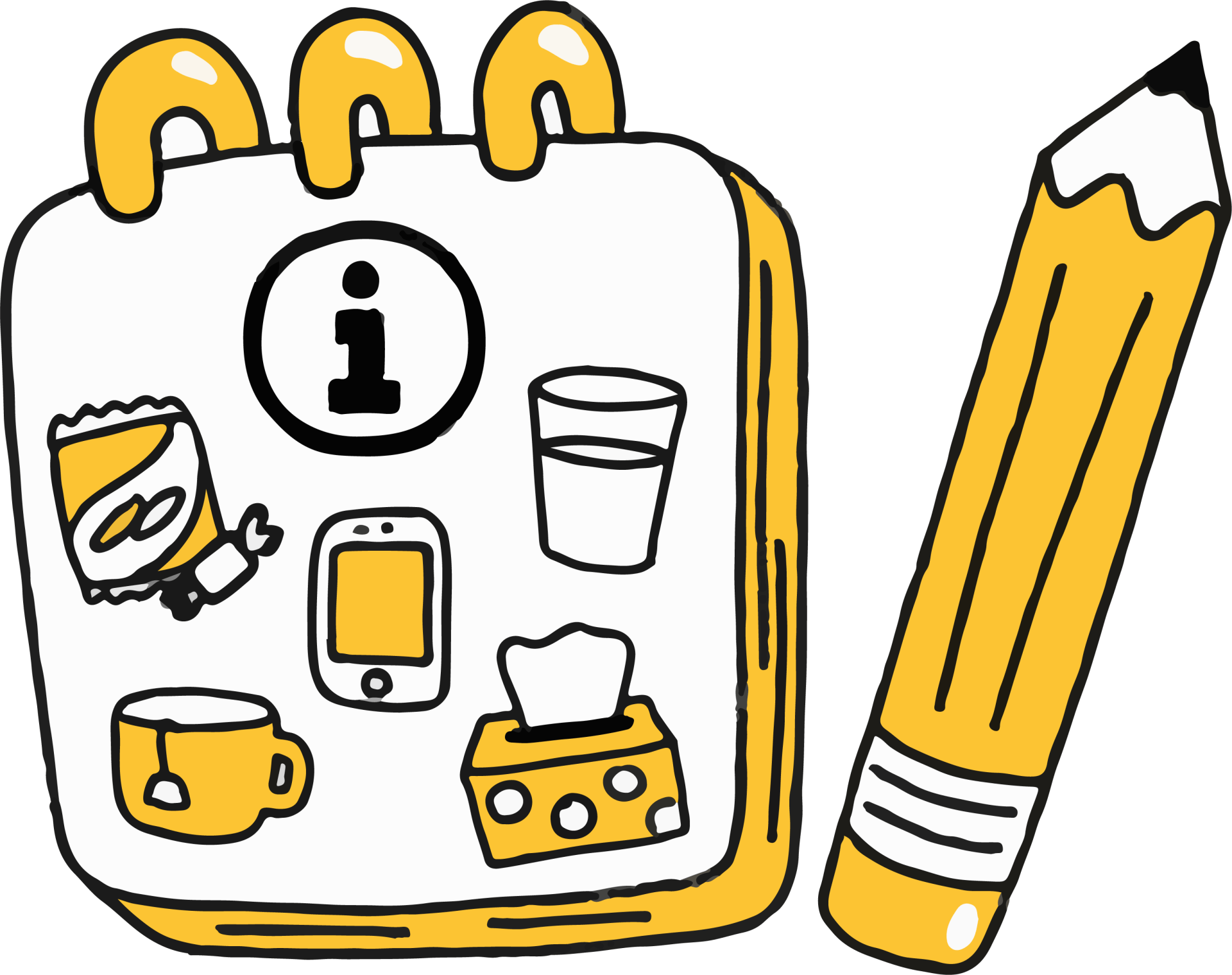
AM I PREPARED?
- Do I understand that if I ask how someone’s going, the answer could be: “No, I’m not”?
- Do I understand that I can’t ‘fix’ someone’s problems?
- Do I accept that they might not be ready to talk? Or they might not want to talk to me?
TIPS ON HOW TO ASK

ROLEPLAY AN R U OK? CONVERSATION
It’s not always easy to keep the conversation going when someone says they’re not OK, but it could change a life. We’ve released interactive conversation roleplay videos to help you learn what to say after R U OK?
Click play on the video and choose one of the five scenarios to get started and learn how to ask R U OK?, listen, encourage action and check in. You can refresh your browser to return to the roleplay index page.
AUSLAN RESOURCES
We've collaborated with Deaf Connect on a series of videos explaining the R U OK? message in Auslan. Special thanks to the QBE Foundation for their generous support of this project .




